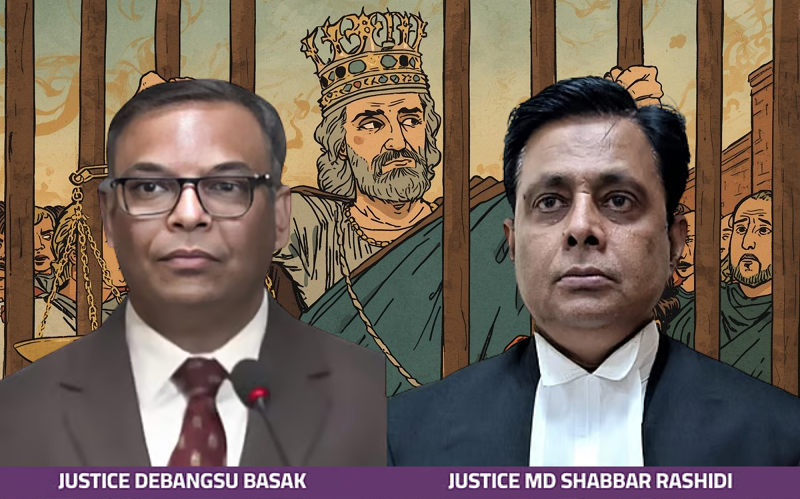Analyzing Mitigating Factors in the Transformation from "Rarest of Rare" to Life Imprisonment
The Calcutta High Court, comprising Justices Debangsu Basak and Md. Shabbar Rashidi, made a pivotal decision in the case of State of West Bengal v. Radha Kanta Bera, commuting a death sentence to life imprisonment. This case, rooted in the gruesome act of beheading the victim, sheds light on the judicial approach to sentencing, particularly the consideration of mitigating factors and the socio-economic background of the convict.
Understanding the Case:
Radha Kanta Bera was convicted under Section 302 of the Indian Penal Code for the brutal murder of his grandmother by beheading her. The trial court had initially awarded the death penalty, considering the heinous nature of the crime. However, upon appeal, the High Court undertook a comprehensive analysis of mitigating factors that altered the course of justice from capital punishment to life imprisonment.
Key Factors Influencing the Judgment:
1. Mitigating Circumstances: The High Court emphasized the importance of assessing mitigating factors, including the convict's age, mental health issues stemming from a prior injury, absence of criminal antecedents, and good conduct in the correctional home. These elements collectively contributed to the conclusion that the case did not meet the threshold of "rarest of rare" cases warranting the death penalty.
2. Legal Precedents: The judgment refers to several Supreme Court cases, such as Bachan Singh v. State of Punjab, which established guidelines for imposing the death penalty. The court reiterated that capital punishment should be reserved for cases where the convict is deemed beyond reformation and poses a continuing threat to society.
3. Socio-Economic Background: The court considered the socio-economic status of Radha Kanta Bera, highlighting his role as the sole breadwinner for his family and the mental illness he developed following an accident. This assessment underscores the necessity of understanding the broader context of the convict's life before determining the appropriateness of the death penalty.
4. Psychological Evaluation and Conduct Reports: The court reviewed reports detailing the convict's behavior in the correctional facility, which indicated his inclination towards reform. This evidence played a crucial role in demonstrating the potential for rehabilitation rather than irreversible condemnation.
Implications of the Judgment:
The decision to commute the death sentence to life imprisonment reflects a nuanced approach to justice, prioritizing rehabilitation over retribution. It illustrates the judiciary's commitment to a humane legal system that considers individual circumstances, mental health, and socio-economic factors in sentencing decisions.
Conclusion:
The Calcutta High Court's judgment in State of West Bengal v. Radha Kanta Bera is a testament to the evolving jurisprudence surrounding capital punishment in India. By weighing the mitigating factors and socio-economic background, the court shifted the narrative from punitive justice to one of potential reform and rehabilitation. This landmark decision not only impacts the lives involved but also sets a precedent for future cases, encouraging a more empathetic and individualized approach to sentencing in the Indian legal system.
Ultimately, this judgment serves as a reminder that justice must be tempered with compassion, and that every convict, regardless of their crime, deserves a chance at reformation and redemption.
State of West Bengal v. Radha Kanta Bera, (Calcutta)(DB) : Law Finder Doc Id # 2753074




